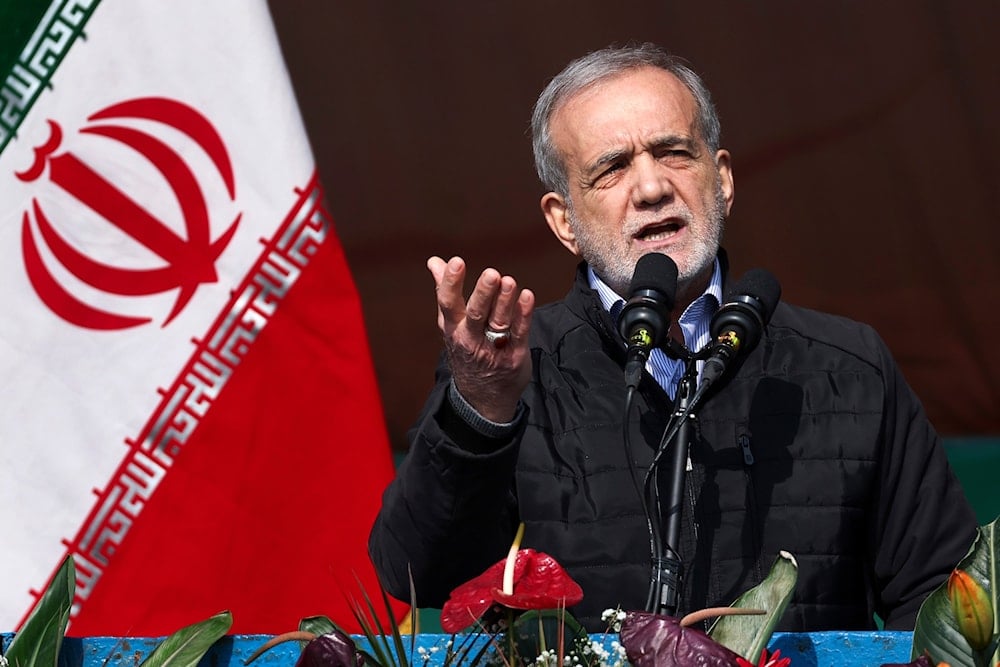Cooperation with IAEA hinges on ending double standards: Pezeshkian
Iran’s President Pezeshkian warns of strong retaliation to aggression, ties IAEA cooperation to fairness, and calls out "Israel" and US hostility.
-

Iranian President Masoud Pezeshkian speaks during a rally on Feb. 10, 2025, in Tehran, Iran (AP)
Iranian President Masoud Pezeshkian stated that Tehran would continue cooperation with the International Atomic Energy Agency (IAEA) only if the organization addresses its perceived bias, while also asserting Iran's preparedness to retaliate strongly against any potential aggression.
During a Wednesday evening phone call with European Council President Antonio Costa, President Pezeshkian emphasized Iran's history of principled collaboration with the IAEA while stressing that ongoing cooperation depends on eliminating discriminatory practices in handling Iran's nuclear file. Pezeshkian warned that further hostile actions would trigger an even stronger retaliation from Iran.
Emphasizing Iran's commitment to peace, regional stability, and diplomatic engagement during this new political phase, President Pezeshkian criticized the reckless Israeli behavior as a source of global insecurity, pointing out that Tehran had sought dialogue yet was met with hostility from "Israel" and the US.
Addressing Costa's worries about Iran's reduced IAEA cooperation, Pezeshkian reiterated Tehran's commitment to dialogue, diplomacy, and international law, framing recent parliamentary measures as a response to the agency's perceived bias and unprofessionalism.
IAEA's silence on Israeli attacks erodes its credibility
Pezeshkian stated that the IAEA's lack of impartiality, its silence on attacks against Iran's nuclear sites, and its violation of international law have eroded its credibility, prompting Tehran's parliamentary countermeasures, while emphasizing that membership in organizations like the IAEA must provide equitable advantages to maintain its worth.
Pezeshkian stressed that future cooperation hinges on addressing discriminatory practices while expressing appreciation for Costa's diplomatic efforts and affirming Iran's readiness to enhance EU relations through constructive and mutual dialogue.
Costa affirmed the EU's commitment to resolving differences diplomatically and enhancing collaboration with Iran, stating, "I fully agree with you that international organizations must avoid any form of double standards."
The EU Council President expressed the European Union's profound respect for Iran's historical heritage and cultural legacy while reaffirming its readiness for constructive engagement, adding that the EU condemns "Israel's" rights abuses in Gaza and emphasizes the urgency of ceasing hostilities, ensuring aid delivery, and supporting Palestinians effectively.

 2 Min Read
2 Min Read










